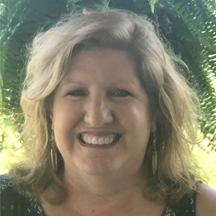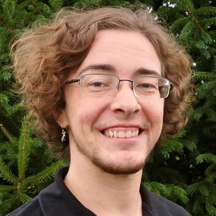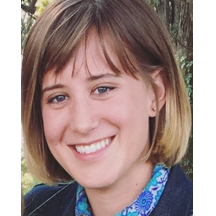New to Public Health-Cohort 3: Session 5-Chronic Disease and Injury Prevention
Overview
The New to Public Health Residency Program is an innovative development program designed to build confidence and competency for professionals who are new to public health.
The program is built upon the Foundational Public Health Services Model and develops enhanced knowledge and skills within the foundational areas and capabilities that are essential to public health practice.
The residency program includes an evidence-based practice project, peer networking, mentoring, facilitated reflection and journaling, simulation, and case studies to support the new resident as they transition to practice; while inspiring collaborative, interdisciplinary relationships to promote and protect health at a population level.
Statement of Need and Purpose
The residency program is designed to provide new public health professionals the foundational capabilities that are essential to public health practice. Overarching residency curriculum focuses on leadership, professional development, role-specific formation and competency. A residency program bridges the workforce by integrating the knowledge of experienced public health professionals and the fresh ideas of new staff to positively affect population health.
Integration of public health professionals from across jurisdictions allows the new public health professional to understand how diversity in the workforce strengthens essential services across city and county lines, and allows for enhanced networking and future collaboration.
Residency programs supplement state and local orientation programs and build upon department-specific policy, procedures, and tasks, to allow the resident to see a fuller picture of the field of public health.
This contemporary program utilizes a comprehensive practice model that supplements existing knowledge of staff and supports the synthesis of new ideas. The program promotes standardized tools for the participant to customize based on their individual practice.
Target Audience
This residency program is designed to meet the needs of nurses, social workers, sanitarians, health educators, and other public health professionals that are new to their roles.
Elements of Competence
This continuing education (CE) activity is designed to improve learner competence, and focuses on the American Board of Medical Specialties’ areas of interpersonal communication skills, professionalism and systems-based practice, the Institute of Medicine area of employing evidence-based practice, applying quality improvement, and utilizing information, and the Interprofessional and Nursing areas of values/ethics, roles/responsibilities and interprofessional communication.
Global Learning Objectives
By the end of the residency program, the new public health professional as a member of the interprofessional healthcare team will:
- Apply learned concepts from the Foundational Public Health Services’ model to their public health professional practice.
- Increase knowledge, skills, and confidence for competent public health practice.
- Access tools and resources applicable to public health practice.
- Apply health equity and social justice concepts to public health practice.
- Demonstrate enhanced cultural competency knowledge and skills in their individual practice.
- Research, plan, and present a quality improvement or evidence-based practice project within their local health department or community.
Session Learning Objectives
By the end of this session, the new public health professional as a member of the interprofessional healthcare team will:
- Explain how public health provides timely, statewide, and locally relevant, and accurate information to the health care system and community on chronic disease and injury prevention and control.
- Identify statewide and local chronic disease and injury prevention community partners and their capacities, develop and implement a prioritized prevention plan, and seek funding for high priority initiatives.
- Describe how public health can reduce statewide and community rates of tobacco use through a program that conforms to standards set by the state or local laws and CDC’s Office on Smoking and Health; including, activities to reduce youth initiation, increase cessation, and reduce secondhand smoke exposure, as well as exposure to harmful substances.
- Identify how public health works actively with statewide and community partners to increase statewide and community rates of healthy eating and active living through a prioritized approach focusing on best and emerging practices aligned with national, state, and local guidelines for healthy eating and active living.
- Recognize how public health coordinates and integrates categorically-funded chronic disease and injury prevention programs and services.
- Evaluate ways to engage members of the community in a community health improvement process that draws from community health assessment data and establishes a plan for addressing priorities. The community health improvement plan can serve as the basis for partnership development and coordination of effort and resources.
Estimated time to complete this session is 7.25 hours.
Successful Completion
Residents will view lectures, panel discussions, participate in cased-based and small-group discussions, participation in simulation and skill-based training, and participate in simulation, skill-based training, and gaming activities over a 12 month period of time.
The residency program also includes an evidence-based practice project, peer networking, mentoring, facilitated reflection, journaling to support the new resident as they transition to practice while inspiring collaborative, interdisciplinary relationships to promote and protect health at a population level.
SESSION SECTIONS |
|---|
| Session 5: Pre-Test |
| Chronic Disease Overview |
| Scavenger Hunt |
| Nutrition, Physical Activity & Obesity Prevention |
| Tobacco Prevention |
| Alcohol Use |
| Injury Prevention |
| Health Behaviors |
| Policy, Systems, and Environment Change |
| What Works for Health |
| Healthy People 2030 |
| CHA & CHIP Overview |
| Chronic Disease and Injury Prevention Showcase |
| Discussion |
| Reflection |
| Discussion Post Check In |
| Session 5: Post-Test |
| Session 5: Evaluation |
| References |
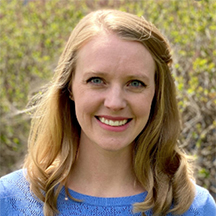 | Julianna ManskeNEW TO PUBLIC HEALTH RESIDENCY PROGRAM FACILITATORJulianna Manske is the is facilitator and cofounder of the New to Public Health Residency Program and is employed with the University-Wisconsin Madison School of Nursing. Julianna spearheaded the workgroup in 2016 that developed and implemented the Southeastern Wisconsin Public Health Nurse Residency Program. This program, which ran from 2017-2020, served as a foundation to build the New to Public Health Residency Program, which supports public health professionals in their first year of employment at a local, regional, tribal, or state health department. Julianna serves as a co-chair on the Association of Public Health Nurses’ Education and Professional Development subcommittee. Julianna graduated from Concordia University in 2014 with a Master of Science in Nursing Education, and Carroll University in 2009 with a Bachelor of Science in Nursing. Julianna is passionate about workforce development and she is grateful to work with an incredible team developing the New to Public Health Residency Program and collaborating with public health leaders across the country. |
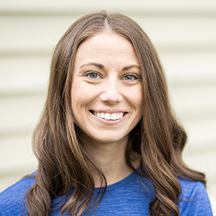 | Hannah HayesNEW TO PUBLIC HEALTH RESIDENCY PROGRAM FACILITATOR AND PROJECT MANAGERHannah Hayes is the New to Public Health project manager, facilitator, and co-developer of the New to Public Health Residency Program. In 2018 Hannah completed her Master of Public Health (MPH) at the University of Wisconsin-Madison. During this time, Hannah partnered with the Southeastern Wisconsin Public Health Nurse Residency Program, where she assisted in the co-development of a toolkit for the dissemination and implementation of the residency program, which served as the foundation for the New to Public Health Residency Program. Hannah is currently employed by the University of Wisconsin-Madison School of Nursing as the Project Manager of the New to Public Health Project. Hannah graduated with her Bachelor of Science in Nursing in 2016. Hannah has experience in family practice & forensics, postpartum, and public health nursing in addition to serving as a public health clinical instructor. Hannah is passionate about social justice, empowering new professionals, and advancing the public health profession. |
| Barb DuerstMs. Barbara Duerst is the Deputy Director of the School of Medicine and Public Health (SMPH) Master of Public Health (MPH) Program. She began her career as a public health nurse and eventually served as the health officer in the Green County Health Department in southern Wisconsin. She received a bachelor’s degree in nursing from Edgewood College in Madison and a master's degree in community health nursing and administration from UW-Madison.
|
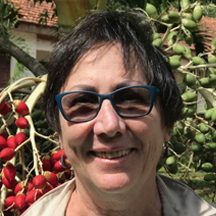 | Linda BaumannLinda J. Baumann, PhD, RN-C, FAAN is Professor Emerita University of Wisconsin-Madison School of Nursing and an affiliate faculty member in the School of Medicine and Public Health. She is a Fellow of the American Academy of Nursing and a Fellow of the Society of Behavioral Medicine. Professor Baumann received her nursing degrees from the University of Michigan and her PhD in health psychology from the UW-Madison. She practiced as an Adult Nurse Practitioner in primary care settings with underserved populations in both urban and rural settings and internationally. Her research examines how beliefs about health and illness influence self-care behaviors. Professor Baumann has been involved in healthcare workforce development in Uganda and Vietnam, and in rural Wisconsin. She is a founding member of the UW-Madison Global Health Institute and active in many national and international professional organizations. She has served as president of the Society of Behavioral Medicine and as a member of the US Preventive Services Task Force. Most of her teaching career has involved delivering interdisciplinary courses for health science and public health students. Professor Baumann remains active in her community in volunteer organizations and continues to enjoy gardening, sailing, and traveling. |
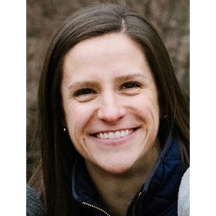 | Kelli StaderKelli Stader, MPH, RD, is the Nutrition Coordinator for the Chronic Disease Prevention Unit at the Wisconsin Department of Health Services. In this role, she implements policy, systems, and environmental change strategies to support breastfeeding and healthy eating. She works closely with state and local partners to foster coordination and collaboration across communities, prioritizing equity to reduce disparities in healthy behaviors and related outcomes.
|
| Benjamin AndertBen Andert, MPH, (they/them/theirs) is a Wisconsin Population Health Service Fellow placed at the Wisconsin Department of Health Services in the Chronic Disease Prevention Unit. The Fellowship is a two-year post-graduate public health service-learning program. Through the Fellowship, Ben is able to work to improve health in Wisconsin communities while also building public health and leadership skills around health equity and coalition building.
|
| Lena SwanderLena Swander, MPH, is an epidemiologist with the Chronic Disease Prevention Unit at the Wisconsin Department of Health Services. She monitors chronic diseases and investigates their environmental, social, and behavioral underpinnings to support health promotion programming.
|
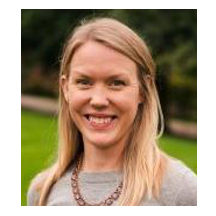 | Kiersten FrobomKiersten holds dual master’s degrees in Public Affairs and Public Health, and a certificate in Global Health, from the University of Wisconsin-Madison. During graduate school, Kiersten worked as a project assistant with County Health Rankings & Roadmaps, interned with nonprofit Health Access Connect on its Monitoring and Evaluation team in Uganda, and held a German Language and Area Studies fellowship. Prior to graduate school, Kiersten worked at the statewide research project Survey of the Health of Wisconsin and at the Wisconsin Historical Society. She has a B.A. in History and certificate in Women’s Studies from the University of Wisconsin-Madison.
|
| Jessica SolczJessica holds a Master of Public Health from the Central New York Master of Public Health Program, a joint venture between Syracuse University and the State University of New York Upstate Medical University. She has a Certificate of Advanced Study in Health Services Management and Policy from Syracuse University. During graduate school, she worked as a research assistant to Dr. Thomas Dennison of the Maxwell School, interned at the Health Foundation for Western and Central New York, was a residential assistant, and worked as a phlebotomist. She received a B.A. in History from Colgate University. Her research interests include health equity and community development, particularly around health care access & quality, housing, tobacco use, and health in all policies. |
Acknowledgements
A special thank you to the following individuals for allowing us to showcase the work they have done to reduce chronic disease and injury prevention in their respective communities:
- Juanita Graham (Scott County, Mississippi)
- Deborah McIintosh (San Diego, California)
- Latronda Davis (Atlanta, Georgia)
- Jennifer Cooper (Frederick County, Maryland)
- Cynthia Nunnally (Shelby County, Tennessee)
- Elatris Estell (Shelby County, Tennessee)
- Ellen Henry (Franklin, Wisconsin)
- Anneke Mohr (Milwaukee, Wisconsin)
- Holli Wilke (Walworth County, Wisconsin)
- Diane Keen (Kennesaw, Georgia)
- Pam Tomeny (Kennesaw, Georgia)
- Kinsey Mannebach (Greendale, Wisconsin)
- Tiffany Copeland (Richmond, Virginia)
- Stephanie Toney (Richmond, Virginia)
- Amy Popovich (Richmond, Virginia)
- Janine Tucker (Milwaukee, Wisconsin)
- Alex Peeters (Madison, Wisconsin)
PLANNING COMMITTEE MEMBERS
| Hannah Hayes, MPH, RN University of Wisconsin-Madison, School of Nursing | Julianna Manske, MSN, RN, OCN University of Wisconsin-Madison, School of Nursing | Susan Zahner, DrPH, RN, FAAN University of Wisconsin-Madison, School of Nursing |
| Deborah Heim, PhD, MS, MN, BSN Public Health Nurse Consultant (PHNC) Wisconsin Division of Public Health Office of Policy and Practice Alignment (OPPA) for the SE region | Ajay Sethi, PhD, MHS UW-Madison School of Medicine and Public Health |
POLICY ON DISCLOSURE
It is the policy of the University of Wisconsin–Madison Interprofessional Continuing Education Partnership (ICEP) to identify, mitigate and disclose all relevant financial relationships with ineligible companies* held by the speakers/presenters, authors, planners, and other persons who may influence content of this accredited continuing education (CE). In addition, speakers, presenters and authors must disclose any planned discussion of unlabeled/unapproved uses of drugs or devices during their presentation.
For this accredited continuing education activity all relevant financial relationships have been mitigated and detailed disclosures are listed below. See Cohort-2 Disclosures and Financial Disclosures for Enduring Content links.
*Ineligible companies are those whose primary business is producing, marketing, selling, re-selling, or distributing healthcare products used by or on, patients.
The ACCME does not consider providers of clinical services directly to patients to be ineligible companies.
The University of Wisconsin provides equal opportunities in employment and programming, including Title IX requirements. The University of Wisconsin fully complies with the legal requirements of the ADA and the rules and regulations thereof. If any participant in this educational activity is in need of accommodations, please contact [email protected].
Cohort-3 Disclosures
Name | Role | Financial Relationship Disclosures | Discussion of Unlabeled/Unapproved uses of drugs/devices in presentation? |
| Raia Stamm | Speaker/Author | No relevant relationships with ineligible companies to disclose | No |
Accreditation Statement
 | In support of improving patient care, the University of Wisconsin–Madison ICEP is jointly accredited by the Accreditation Council for Continuing Medical Education (ACCME), the Accreditation Council for Pharmacy Education (ACPE), and the American Nurses Credentialing Center (ANCC) to provide continuing education for the healthcare team. |
CREDIT DESIGNATION STATEMENTS
AMERICAN NURSES CREDENTIALING CENTER (ANCC)
The University of Wisconsin–Madison ICEP designates this enduring activity for a maximum of 7.25 ANCC contact hours.
CONTINUING EDUCATION UNITS (CEUS)
The University of Wisconsin–Madison ICEP, as a member of the University Professional & Continuing Education Association (UPCEA), authorizes this program for .725 CEUs or 7.25 hours
CERTIFIED HEALTH EDUCATION SPECIALISTS (CHES) AND/OR MASTER CERTIFIED HEALTH EDUCATION SPECIALISTS (MCHES)
Sponsored by University of Wisconsin–Madison ICEP, a designated provider of continuing education contact hours (CECH) in health education by the National Commission for Health Education Credentialing, Inc. This program is designated for Certified Health Education Specialists (CHES) and/or Master Certified Health Education Specialists (MCHES) to receive up to 7.25 total Category I continuing education contact hours. Maximum advanced-level CECH available are 1. Continuing Competency credits available are 7.25.
Total contact hours: 7.25
Entry-level contact hours: 6.25
Advanced-level contact hours: 1.0
Available Credit
- 7.25 ANCC Contact Hours
- 7.25 CECH Approved Credits
- 7.25 Entry-level Continuing Competency credits
- 1.00 Advanced-level credits
- 6.25 Entry-level credits
- 7.25 University of Wisconsin–Madison Continuing Education Hours

 Facebook
Facebook X
X LinkedIn
LinkedIn Forward
Forward